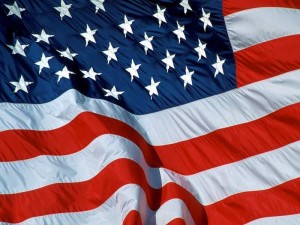 Enough about turkeys today. Let’s talk hawks and doves, taking as our text the work of two good writers with very different world views.
Enough about turkeys today. Let’s talk hawks and doves, taking as our text the work of two good writers with very different world views.
Clifford May, who leads the Foundation for Defense of Democracies, starts his Thanksgiving Day column by giving thanks for the members of our nation’s armed forces.
At this moment, such men and women are far from their homes fighting an enemy whose goal is to make us submit — to them, their laws, and their authority. Ayatollah Ruhollah Khomeini, leader of Iran’s Islamist revolution, put it succinctly: “People cannot be made obedient except with the sword!”We can argue about the best strategy for defeating these sworn enemies of America and the West — of Christians, Jews, Hindus, Buddhists, and moderate Muslims. But we should not be debating whether to be a bit more obedient; whether to appease this enemy; whether we can, through soft words and conciliatory deeds, make ourselves inoffensive to him; whether this conflict is our fault, at least as much as his.
Nor should we still be describing this global conflict as “overseas contingency operations” against “violent extremists” — phrases that cloud meaning and obscure understanding. The simple truth: Just as Nazism arose from within Germany, and Communism from within Russia, today radical and bellicose ideologies, movements, and organizations have arisen from within Iran, Saudi Arabia, and other Islamic countries.
I agree “we should not be debating … whether we can, through soft words and conciliatory deeds, make ourselves inoffensive” to our enemies. And yet that debate continues.
I met Robert Wright at Princeton, where he was a year ahead of me, and over the years I’ve followed his commentary I’ve found that I respect him more than I agree with him. He’s a thoughtful writer who presses his anti-war case without demonizing those who disagree.
Wright has a column in the online New York Times this week in which he argues that the war in Afghanistan is “Worse Than Vietnam.” Afghanistan is the longest war in American history, and more expensive than Vietnam and Korea combined. Wright argues that by making war in Afghanistan and Iraq on anti-American jihadists, “we’re creating them faster than we’re killing them,” although he has the grace to acknowledge that this view is “impressionistic.”
All told, then: in terms of the long-run impact on America’s economic and physical security, the Afghanistan war is as bad as the Vietnam War except for the ways in which it’s worse.
Still, the strategy in whose name both wars were launched, containment, makes sense if wisely calibrated. [Side note: how did the launch of the war in Afghanistan have anything to do with “containment”?] A well tuned terrorism containment strategy — dubbed containment 2.0 by the foreign policy blogger Eric Martin — would require strong leadership in the White House and in Congress. It would mean convincing Americans that — sometimes, at least — we have to absorb terrorist attacks stoically, refraining from retaliation that brings large-scale blowback.
That’s a tough sell, because few things are more deeply engrained in human nature than the impulse to punish enemies. So maybe the message should be put like this: Could we please stop doing Al Qaeda’s work for it?
The idea that retaliation is counter-productive has a logic to it. The argument deserves to be taken seriously… but it leads to untenable places. I fervently hope that America never gets to the point where it can “absorb terrorist attacks stoically.” As the first commenter (of more than 300) on Wright’s blog post put it, “Neville Chamberlain could not have written a better article.”
Back to Clifford May:
We live in uncertain times. In the early 20th century, terrorism meant a bomb thrown into a carriage. Today, it means a passenger jet slammed into a skyscraper. Tomorrow it could mean the detonation of nuclear devices, the use of biological weapons to spread dread diseases, or even cyber attacks on our electronic infrastructure.
In the past, we fought godless enemies who killed without remorse. What could be worse than that? An enemy who believes the God he worships commands him to slaughter “infidels,” an enemy who loves death — his own and even that of his children. If that is not evil, nothing is.
Should we be thankful for this enemy and this war? No, but perhaps we can be thankful for the fact — and I believe it is a fact — that we Americans, most of us, or at least enough of us, are equal to the challenge we face.
This blog was founded on the premise that — paraphrasing something Edmund Burke apparently did not actually say — all that is necessary for evil to triumph is for good people to do nothing. America is not without flaw, but I firmly believe it is the greatest force for good in the history of the world. And people who deliberately fly airplanes into buildings are evil.
On this day of giving thanks I’m deeply grateful to the men and women of the American armed forces. I pray for the well-being of all of them, but I’ve got a special stake in one. Harry, be safe, and thank you for your service.
Leave a Reply